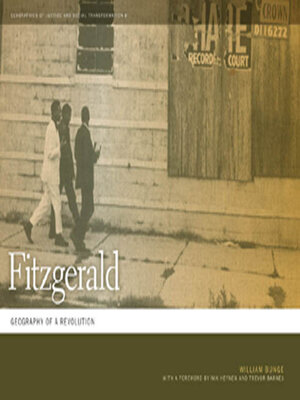Fitzgerald
ebook ∣ Geography of a Revolution · Geographies of Justice and Social Transformation
By William Bunge

Sign up to save your library
With an OverDrive account, you can save your favorite libraries for at-a-glance information about availability. Find out more about OverDrive accounts.
Find this title in Libby, the library reading app by OverDrive.



Search for a digital library with this title
Title found at these libraries:
| Library Name | Distance |
|---|---|
| Loading... |
This on-the-ground study of one square mile in Detroit was written in collaboration with neighborhood residents, many of whom were involved with the famous Detroit Geographical Expedition and Institute. Fitzgerald, at its core, is dedicated to understanding global phenomena through the intensive study of a small, local place.
Beginning with an 1816 encounter between the Ojibwa population and the neighborhood's first surveyor, William Bunge examines the racialized imposition of local landscapes over the course of European American settlement. Historical events are firmly situated in space—a task Bunge accomplishes through liberal use of maps and frequent references to recognizable twentieth-century landmarks.
More than a work of historical geography, Fitzgerald is a political intervention. By 1967 the neighborhood was mostly African American; Black Power was ascendant; and Detroit would experience a major riot. Immersed in the daily life of the area, Bunge encouraged residents to tell their stories and to think about local politics in spatial terms. His desire to undertake a different sort of geography led him to create a work that was nothing like a typical work of social science. The jumble of text, maps, and images makes it a particularly urgent book—a major theoretical contribution to urban geography that is also a startling evocation of street-level Detroit during a turbulent era.
A Sarah Mills Hodge Fund Publication







